- Home
- Anne McCaffrey
The Lady
The Lady Read online
THE LADY
Anne McCaffrey
BALLANTINE BOOKS • NEW YORK
Contents
Title Page
Dedication
Map
Acknowledgments
Chapter 1
Chapter 2
Chapter 3
Chapter 4
Chapter 5
Chapter 6
Chapter 7
Chapter 8
Chapter 9
Chapter 10
Chapter 11
Chapter 12
Chapter 13
Chapter 14
Chapter 15
Chapter 16
Chapter 17
Chapter 18
Chapter 19
Chapter 20
Chapter 21
Chapter 22
Chapter 23
Chapter 24
Chapter 25
Chapter 26
Chapter 27
Chapter 28
Chapter 29
Chapter 30
Chapter 31
Chapter 32
Chapter 33
Chapter 34
Afterword
Glossary
Other Books by Anne McCaffrey
To learn more about other great Ballantine Books . . .
Acclaim for Anne McCaffrey and The Lady
Copyright
This book is dedicated to the memory
of a promising amateur jockey
ROBERT RICHARD EVANS
(October 24, 1964–August 18, 1986)
of Kilpedder, County Wicklow, Ireland
killed by the driver of a stolen car
sadly missed by all who knew and loved him—and me.
Acknowledgments
With no touch of sentimentality, this book would not have been written without my acquaintanceship with many Irish horses and ponies. They were the inspiration for the book—they and those who have dedicated much of their lives and energies to the horse, the noblest, bravest, proudest, most courageous, and certainly the most perverse and infuriating animal that humans ever domesticated.
Granted, I would not have written such a book without the sly persuasion of the glib-tongued Toby Roxburgh and, later, the shrewd insights of Pamela Dean Strickler, to both of whom I now tender gratitude and thanks. And I do very much appreciate the patience and tolerance of my agents, Virginia Kidd and Diana Tyler, for steadfastly encouraging me in this project, so far from my usual themes.
Thanks also to Catherine Ann Callaghan, who wore her eyes out on the microfiche records of ten years of Irish history, and to Jennifer Hatton Kiersey, who asked strange (to her) questions of many officials at the Royal Dublin Society and Bord na gCapall.
For their time in answering my odd questions, I am also very grateful to many notable Irish and English equestrians: Jan Regan, Jock Ferrie, Colonel Billy Ringrose, Dermot Forde, Michael Keogh, Ada Mathieson, Bernard Byrne, Joseph Tobin, Claire Devlin (who jockeyed the Dragonhold flat racehorses), the late Robert Richard Evans (who rode Dragonhold’s two National Hunt horses) Georgeanne Johnson, Bobbie Evans, John Boyne, Pat Cleary, Joan, Helen, and Aidan Keogh, Helen Mangan, Aisling Smith, Greg Keating, Louise Cooper, Leslie Parker, and Simon Beirne.
The unexpected djinns of all this were Hilda Whitten, who sold me my beloved gray gelding, Mister Ed, the first horse I ever owned, and Jane Kennedy Bloomer of Brennanstown Riding School, where old Horseface was boarded and where I served my stable management “apprenticeship.”
However, without Derval Diamond, BHSII, and William Micklem, FBHS, this book would have been equally impossible. I can never adequately thank them for both inadvertent help and active corrections. Watching these two “bring on” horses developed a richer understanding and appreciation in me of this wondrously infuriating, stimulating, exacting, personally rewarding, and deeply subtle profession. For they, as riders and trainers, have the deep empathy for horses that provides the basis for much of my story.
—Dragonhold
1
February 1970
FOLLOW the coast road to Greystones, turn right at Blacklion, and watch out for the traffic haring up from the town—some of the drivers buy their licenses at the post office. Stay on that upper road past the Orchard Pub and continue straight through the crossroads at Killincarrig. The right-hand road leads to Delgany, and the left turns back down to the sea. At Pretty Bush turn right and up the hill—mind the children who play in the road—and continue on past Kilquade’s cemetery. There’s a grand view from there of the sea and the convent and the mountains, not yet greening with spring but with twisted pines marching on the hill crests, outlined against the bright sky. Just past the cemetery, on the left, is the beginning of Cornanagh, property of the Carradyne family, landowners since the first Carradyne did service for the Crown in the eighteenth century.
Cornanagh means “hill of the beast” in the Irish, though many wonder that the Carradynes, Anglo-Irish and for generations loyal to the Crown, have retained the name. Except that the Carradynes insist that the “beast” is a horse and they have always been notable horsemen and -women and breed some of the finest hunters and hurdlers in the country. In that they have become more Irish than English and, even during the lean years and bad harvests of the previous century, made profit from the production of colts and fillies.
If you drive into Cornanagh through the main gate and past the old gatekeeper’s lodge, the way is lined by massive sycamores and beeches, which legend has it were planted by the first Carradyne. The house, enlarged from an original farm manor of the late 1600s, faces east to the sea, with a gracious prospect of the undulating main fields and pastures of the estate. Past the house on the right are the extensive stables and then the huge walled garden, established in the mid-eighteenth century to amuse and delight the ladies of Cornanagh, sheltered from wind and storm, watered by the little stream that flows down from the hills and into the sea at Kilcoole. Old fig trees cling to its walls; pear, apple, and cherry trees flourish; and raspberry, gooseberry, and quince bear blossom and fruit in their time.
But to find the heart of Cornanagh, continue on the Kilcoole road past the formal entrance, past the high wall that girds the menage—the outdoor exercising ring—and to the strap-iron gates set between the old coach house and the stable block. Turn into the courtyard, past cow byrnes and right into the yard, its cobbled surface neatly swept on this February evening.
Lights, set high on the stable walls, illuminated the quadrangle. The horses all had their heads over their open upper doors, ears pricked, intent on the side that contained the foaling box.
A man of short stature, bundled with scarf, thick jumpers, and an ancient duffle coat against the chill, sharp wind, made his way across the courtyard to the stable block, absently whistling an old tune. He tugged his flat cap to secure it as the wind suddenly smacked against him and shrugged his broad shoulders into the warmth of his old jacket. The horses nickered softly at his passing and Tory, the black and white Wicklow collie, twitched his ears at the familiar step. The man stopped whistling and walked as quietly on the cobbles as he could in heavy leather work boots. He paused at the entrance to the stable, listening. Just then he heard a chorus of whickers from the animals inside, echoed by the horses in the quadrangle: a welcome if ever he’d heard one. Abandoning his cautious approach, he slid the door open and rushed to the center stall of the five in the barn.
Delight brightened Mick Lenahan’s blunt, homely features into a smile as he saw the newcomer on the stable’s straw.
“Ya do it every time, Frolic girl!” His voice was warm with approval for the big chestnut mare who hovered protectively over her newborn lying in the deep straw of the foaling box. “Ah, it’s a grand big foal! The captain’ll be that proud of you. Eve
n if we never can catch you at it!”
He wheeled and, at a clumsy half trot, half canter, ran across both yards to the back door of the house. He entered with no ceremony, save to pull the cap from his graying, thinning hair, and pushed open the double doors into the dining room, where he knew the family was assembled at this hour. His noisy entry made everyone turn toward him: Isabel Carradyne with a frown, Captain Michael Carradyne rising from his seat at the head of the table, his expression expectant.
“She’s done it again, Captain. A fine strong foal.”
Michael Carradyne paused only to brush his napkin across his black mustache and bow courteously to his wife.
“Filly or colt?” he asked.
“Didn’t wait to see, Captain dear.”
“Oh, Mummy, may I go see, too?” said Catriona, the youngest of the current generation.
“Come on, Trina,” her father said, ignoring whatever decision his wife might have made, and the three left the dining room, grabbing the first outerwear to hand from the crowded rack just inside the back door.
They ran across the courtyard. Michael Carradyne, ignoring the twinge of pain from a left leg once torn by shrapnel, followed awkwardly after his nimble daughter. Catriona outdistanced both her father and Mick and reached the stable block first. With fingers made cold by even that brief exposure to the February chill, she fumbled with the door latching. Once inside, she quietly approached the foaling box, blue eyes wide, her mouth breaking into a beautiful smile as she saw the dark foal on the straw. It was now sitting in the deep bedding, its long forelegs straight out in front of it, the back ones jutting outward to the left. Frolic whickered softly, secure in her trust of the humans.
“That’s a fine foal, Frolic,” Michael Carradyne said, coming to stand behind his daughter, his hands on her thin shoulders. The mare whickered once more, as if accepting his praise. Then she bent to nuzzle the newborn, licking the short strong neck.
As the three watched, the foal gave a massive lurch and, to their surprise, managed to stand erect on unsure legs that then buckled behind and made the little creature sit down. It gave a squeaky nicker of irritation and lurched up on all fours again, flicking the little brush of a tail.
“A colt, Captain,” said Mick, “and as fine and independent a fellow as the Tulip has ever sired. He’ll be dark, too, like his da, when that foal coat grows out. Another black Tulip.”
Michael Carradyne, his blue eyes dark and shining, nodded in slow agreement. Then he glanced down at his young daughter. Her expression was enthralled, her mouth slightly open.
“Oh, Daddy, he’s magnificent. The best of this year’s lot. Oh, Frolic, you’ve done it again!”
At not quite thirteen Catriona was just tall enough to see into the foaling box without assistance. She was a thin, slightly built child, who appeared considerably more delicate than she was, an illusion helped by a porcelain-fair skin framed by hair as black as her father’s. Her eyes were the brilliant Carradyne blue, and the tilt of her curved eyebrows was all Carradyne as well. She had more grace about her than most preadolescents, probably the result of her riding, which had developed muscle control and an economy of movement.
Now the colt, plainly determined to succeed, managed first one forward step, then a second, though the hindquarters wobbled precariously. His dam encouraged him and presented her side. Two more steps and the colt was imperiously butting his dam’s teats; latching on to the source of nourishment at the first try, he sucked lustily, tail flicking.
“A strong foal indeed if he’s on his pins and nursing in the first half hour. Or could it be longer than that, Mick?”
“No, Captain, he’d only just been born when I got here. I’d wager anything she was only waiting for me to go for me tea to drop the foal.” Mick shook his head at the mare’s vagaries, but there was pride of her, too. “And isn’t it just like a female!”
“A warm bran mash for her, Mick, with an egg thrown in,” Michael Carradyne prescribed.
Mick grunted without rancor. He knew what to do but it was part of their relationship that the captain gave the order. Mick had come to Cornanagh as a scrawny, undersized twelve-year-old stable boy just after Michael’s birth in 1918. Michael’s father, Colonel Tyler Carradyne, had had as good an eye for a man as a horse and had quickly seen in young Mick Lenahan the raw material from which a first-rate groom, and a lightweight rider, could be made.
Mick didn’t ride as much now as he had: the ground got harder every year, or so he said, and there were plenty to ride in his stead at Cornanagh. He was more use on the ground, having a shrewd eye for the slightest touch of unlevelness in a horse’s stride. Since old Tyler had died, he had become the stallion man, for the Tulip trusted him as much as he did the captain.
In a way, all of Tulip’s foals were Mick’s, for he was always present at their conception and at their birth as well, if they were bred from the Cornanagh mares.
“Not a bother on the colt, Captain dear, not a bother. He’s more the spit of his sire than any we’ve bred.”
As the colt was rump end toward them, Michael Carradyne laughed. “We’ll see, we’ll see. I’d say he’d weigh in at about nine and a half stone.”
“He would that!”
Not one of Frolic’s admirers wanted to leave the renewing sight of the newborn greedily eating. For those who love horses there is endless delight in the contemplation of a horse, moving, grazing, running, jumping. And a new foal in the barn was a pact with his past and a promise to his future for Michael Carradyne. For nearly two hundred years, Carradynes had been breeding horses in this very barn. This was Frolic’s tenth colt, but Michael couldn’t estimate how many foals had taken their first unsteady steps in this oversized box. He was conscious, though, of a sense of continuity with all the Cornanagh horsemen and -women.
Some foals arrived in less than perfect condition, despite all the care Cornanagh lavished on their gravid mares. On others there was an indefinable aura of promise. The strong look and uncompromising attitude of this fellow augured well: his conformation couldn’t be faulted, and by the length of the leg on him, he’d make over sixteen hands of height. A well-shaped little head, slightly dishy, a good shoulder on his little frame, and a deep chest. Newborn hooves are silly, soft affairs, but his were hardening quickly as he strutted about, his longish ears wigwagging, his dark stump of tail twitching with impatience. He was Tulip’s son indeed.
Reluctantly, Michael Carradyne tightened his hands on his daughter’s shoulders. “Enough now, Trina. You’ve schoolwork to do . . . .”
“And the washing up.” Catriona grimaced. She did not resist as her father guided her from the stable with an arm about her shoulders, but she kept her eyes on the mare and foal as long as she could.
“We’ll have no worries about them now, Mick. You sleep in your own bed tonight.”
“Didn’t do me a mite of good for all my watching, did it?” Mick grumbled, glancing back at the mare. It was his practice to bed down in a nearby stall when mares were due to foal, just in case there was trouble. “You’ll be telling Mr. Garden?”
Michael Carradyne grinned broadly at the little man. Mick, of course, would have heard that Jack Garden had bet that Frolic would produce a filly this year. Her unbroken record of colts must lapse, or so Jack Garden had insisted, and he had put his money where his mouth was.
Out in the windy cold the three parted, Mick turning left to the feed room to prepare Frolic’s mash, Catriona hanging on to her father’s hand on their way back to the house.
“Now, promise, Trina,” her father said. “Don’t irritate your mother by running out to see the foal every half hour.”
“I know better than that, Daddy,” she said solemnly. Then she added, “Besides, I’ve got hours of prep to do tonight. And it’s not as if he were a puny foal, like Lady Madeline’s always seem to be. We don’t have to worry about him, do we?”
“No, we don’t!”
Just as they were shedding their jackets, th
e dining room door opened. Philip and Owen came out, closing the door quickly behind them but bringing a puff of warmer air into the cold hallway.
“Filly or colt, sir?” Philip asked.
“Colt.”
“The biggest, strongest colt ever,” Catriona elaborated, her eyes shining so brilliantly that Philip smiled for his small sister’s enthusiasm. “Why, he was up in two tries and nursing first go.”
“Easily nine and a half stone,” Michael Carradyne added with pride.
“Then Garden owes you a flyer, sir?” Owen asked his uncle.
“Now how did you know that?”
“Doesn’t everyone in North Wicklow County?” Philip said, teasing. “What is this, her ninth or tenth colt?”
“Tenth,” Catriona replied.
“Cheeky miss. Your chores!” said her father, and she obediently pushed open the kitchen door. “I think, gentlemen”—he put an arm about the shoulders of his son and nephew—”this calls for a glass of port.” He steered them down the wide hall to the library door.
Catriona hurried through the kitchen, to the lounge behind it, and through the open door that led to the dining room, where her mother, her auntie Eithne, and Bridie were beginning to clear the table now that the men had left.
“What was it, Catriona?” her auntie Eithne asked.
“Oh, the loveliest colt,” she answered as she cast a nervous glance at her mother’s thin-lipped expression. Hoping to avert a scolding, she peered into the pudding dish. “Is there any left for me?”
Bridie nodded, but Isabel Carradyne said, “Not that you deserve any for that precipitous departure from the dining table, young lady.”
“Come now, Isabel, it’s not as if Trina is in the habit of leaping up from the table,” Auntie Eithne began, falling into her customary role of family arbiter. “And her father gave her permission.”
“Proper courtesy demands the permission of the hostess.”

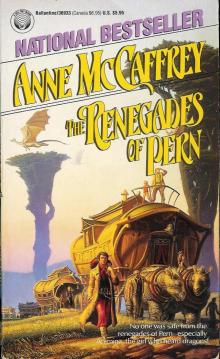 The Renegades of Pern (dragon riders of pern)
The Renegades of Pern (dragon riders of pern)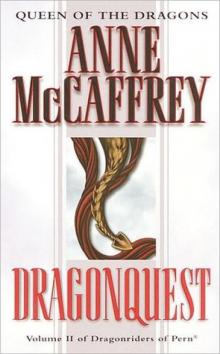 Dragonquest
Dragonquest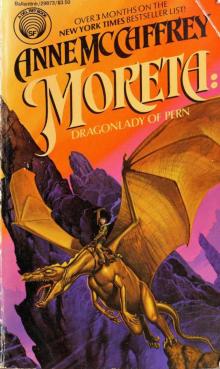 Moreta (Dragonlady of Pern)
Moreta (Dragonlady of Pern)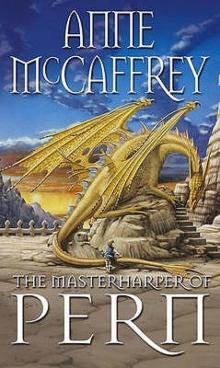 The Masterharper of Pern
The Masterharper of Pern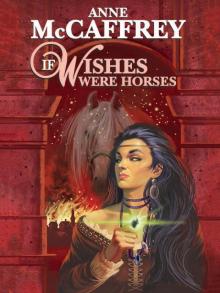 If Wishes Were Horses
If Wishes Were Horses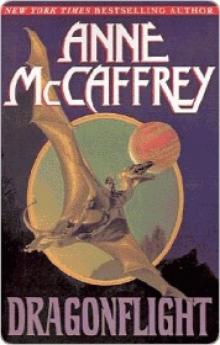 Dragonflight
Dragonflight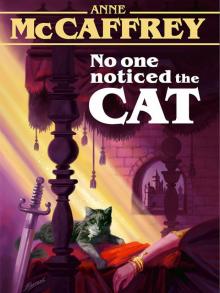 No One Noticed the Cat
No One Noticed the Cat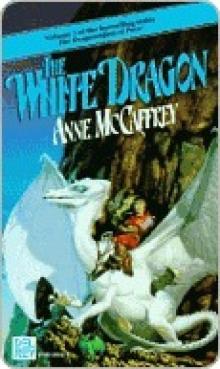 The White Dragon
The White Dragon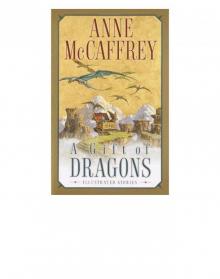 A Gift of Dragons
A Gift of Dragons Harper Hall - Dragonsong
Harper Hall - Dragonsong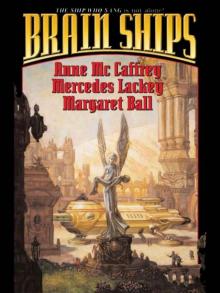 Brain Ships
Brain Ships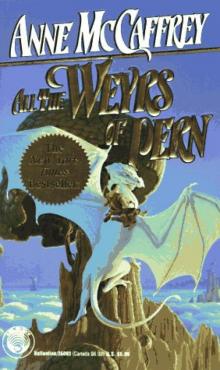 All The Weyrs of Pern
All The Weyrs of Pern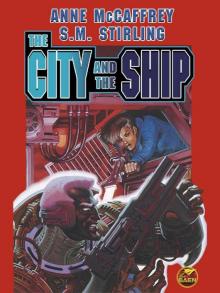 The City and the Ship
The City and the Ship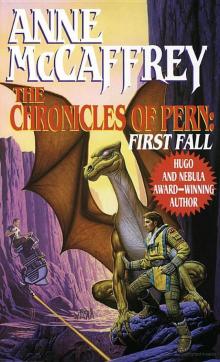 The Chronicles of Pern: First Fall
The Chronicles of Pern: First Fall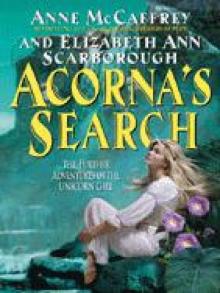 Acorna’s Search
Acorna’s Search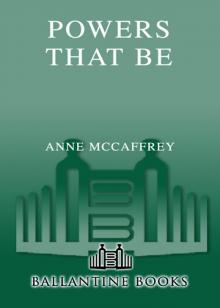 Powers That Be
Powers That Be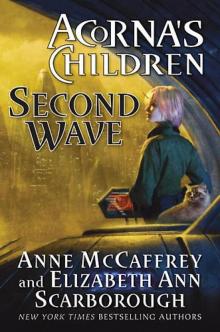 Second Wave
Second Wave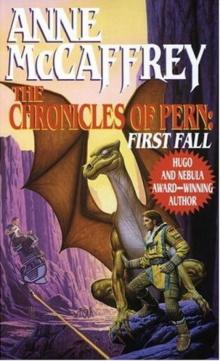 Chronicles of Pern (First Fall)
Chronicles of Pern (First Fall)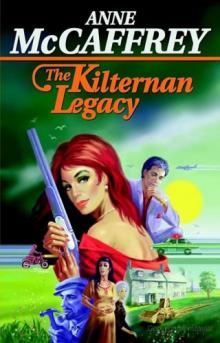 The Kilternan Legacy
The Kilternan Legacy Decision at Doona
Decision at Doona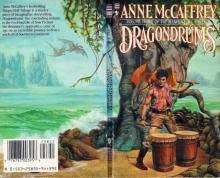 Dragondrums (dragon riders of pern)
Dragondrums (dragon riders of pern)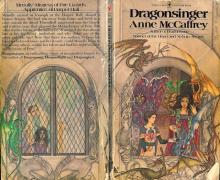 Dragonsinger (dragon riders of pern)
Dragonsinger (dragon riders of pern)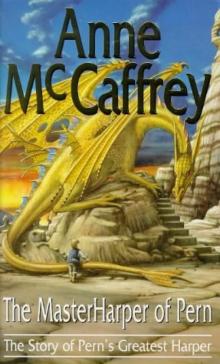 The Master Harper of Pern
The Master Harper of Pern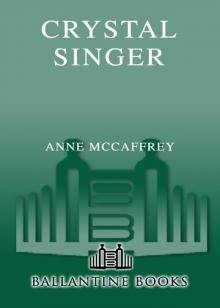 Crystal Singer
Crystal Singer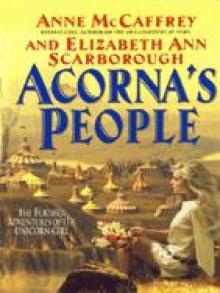 Acorna’s People
Acorna’s People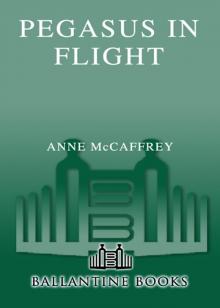 Pegasus in Flight
Pegasus in Flight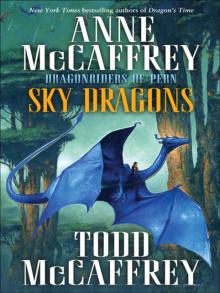 Sky Dragons Dragonriders of Pern
Sky Dragons Dragonriders of Pern Dragonriders of Pern 4 - Dragonsinger
Dragonriders of Pern 4 - Dragonsinger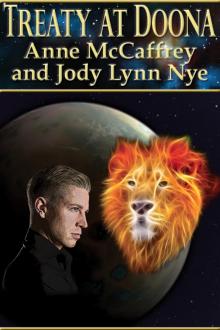 Treaty at Doona
Treaty at Doona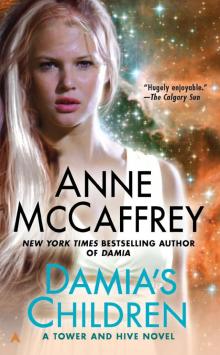 Damia's Children
Damia's Children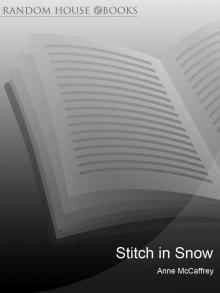 Stitch In Snow
Stitch In Snow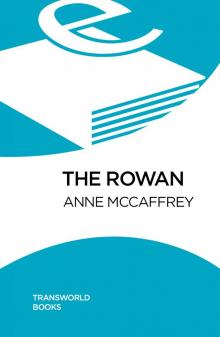 The Rowan
The Rowan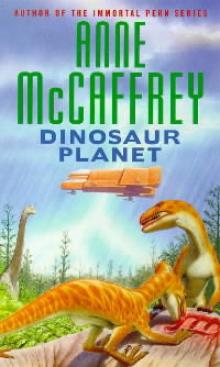 Dinosaur Planet
Dinosaur Planet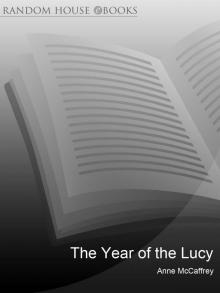 The Year of the Lucy
The Year of the Lucy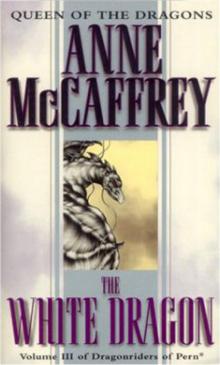 The White Dragon p-4
The White Dragon p-4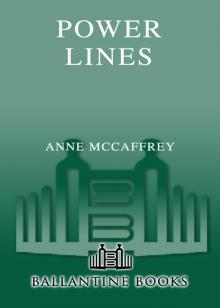 Power Lines
Power Lines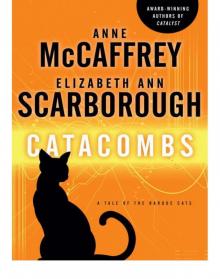 Catacombs
Catacombs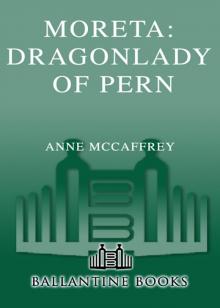 Moreta
Moreta Dragonsinger
Dragonsinger Crystal Line
Crystal Line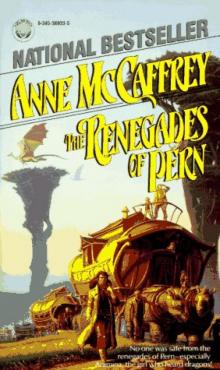 The Renegades of Pern
The Renegades of Pern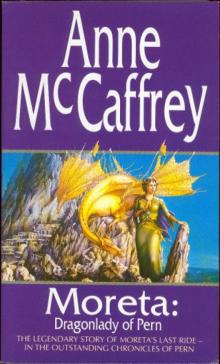 Moreta - Dragonlady of Pern p-8
Moreta - Dragonlady of Pern p-8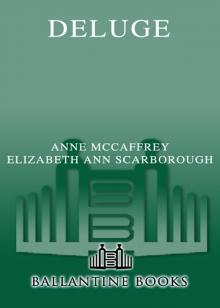 Deluge
Deluge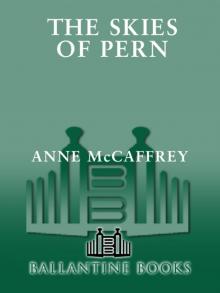 The Skies of Pern
The Skies of Pern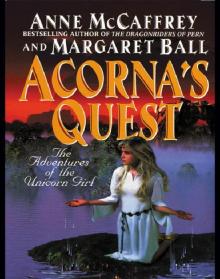 Acorna's Quest
Acorna's Quest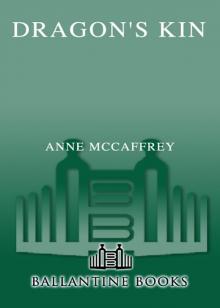 Dragon's Kin
Dragon's Kin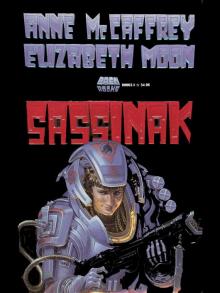 Sassinak
Sassinak![Crystal Universe - [Crystal Singer 03] - Crystal Line Read online](http://i1.bookreadfree.com/i1/03/31/crystal_universe_-_crystal_singer_03_-_crystal_line_preview.jpg) Crystal Universe - [Crystal Singer 03] - Crystal Line
Crystal Universe - [Crystal Singer 03] - Crystal Line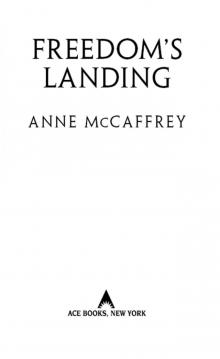 Freedom's Landing
Freedom's Landing Acorna’s Quest
Acorna’s Quest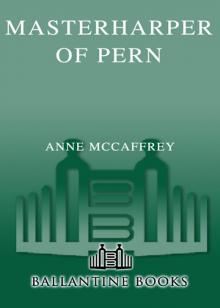 Masterharper of Pern
Masterharper of Pern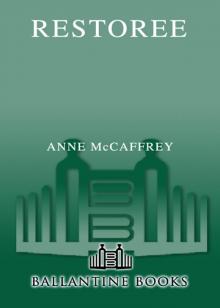 Restoree
Restoree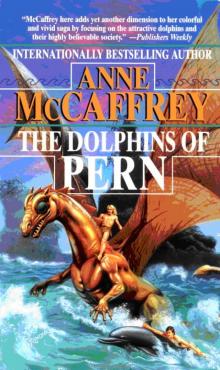 Dolphins of Pern
Dolphins of Pern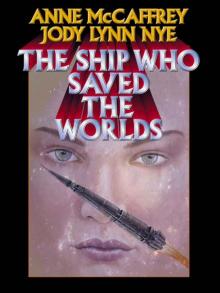 The Ship Who Saved the Worlds
The Ship Who Saved the Worlds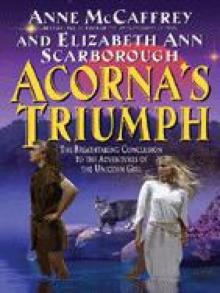 Acorna's Triumph
Acorna's Triumph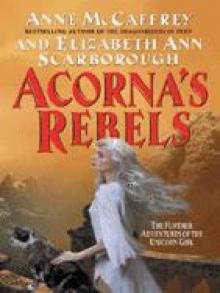 Acorna's Rebels
Acorna's Rebels![[Acorna 08] - First Warning: Acorna's Children (with Elizabeth Ann Scarborough) Read online](http://i1.bookreadfree.com/i1/04/06/acorna_08_-_first_warning_acornas_children_with_elizabeth_ann_scarborough_preview.jpg) [Acorna 08] - First Warning: Acorna's Children (with Elizabeth Ann Scarborough)
[Acorna 08] - First Warning: Acorna's Children (with Elizabeth Ann Scarborough)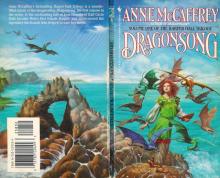 Dragonsong (dragon riders of pern)
Dragonsong (dragon riders of pern) Dragonriders of Pern 6 - Dragondrums
Dragonriders of Pern 6 - Dragondrums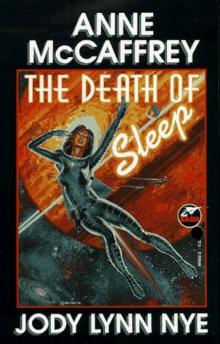 The Death of Sleep
The Death of Sleep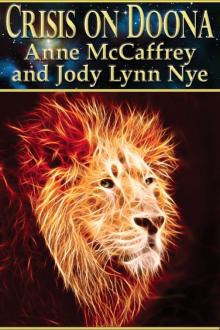 Crisis On Doona
Crisis On Doona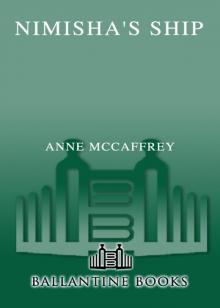 Nimisha's Ship
Nimisha's Ship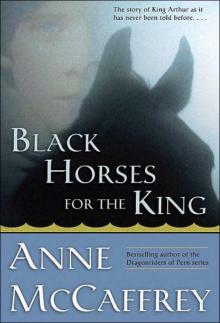 Black Horses for the King
Black Horses for the King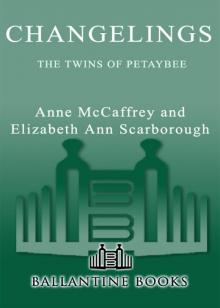 Changelings
Changelings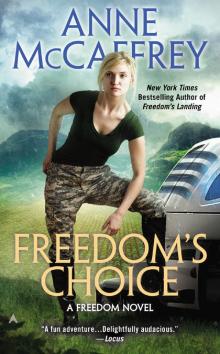 Freedom's Choice
Freedom's Choice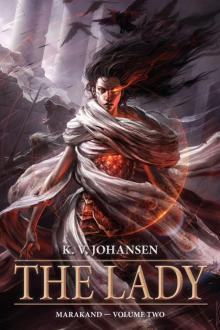 The Lady
The Lady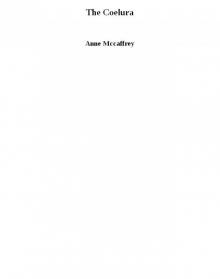 The Coelura
The Coelura Catalyst
Catalyst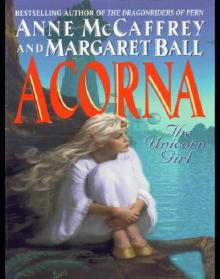 The Unicorn Girl
The Unicorn Girl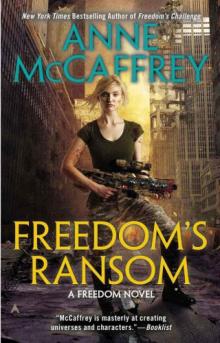 Freedom's Ransom
Freedom's Ransom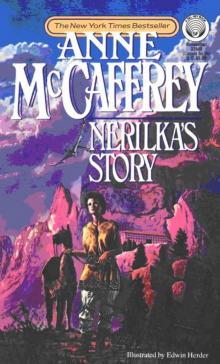 Nerilka's Story
Nerilka's Story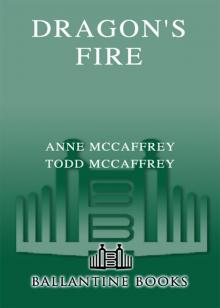 Dragon's Fire
Dragon's Fire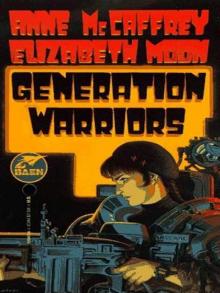 Generation Warriors
Generation Warriors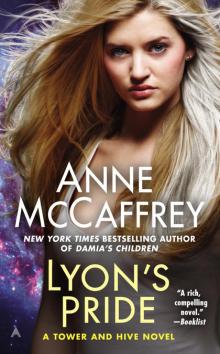 Lyon's Pride
Lyon's Pride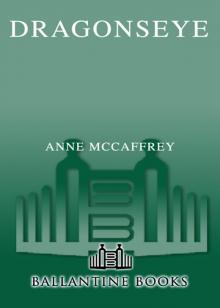 Dragonseye
Dragonseye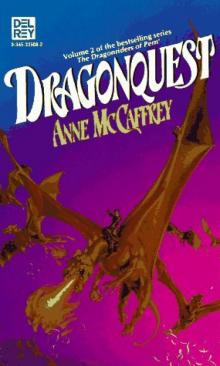 Dragon Quest
Dragon Quest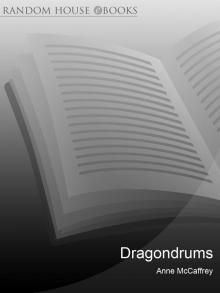 Dragondrums
Dragondrums Dragonsong
Dragonsong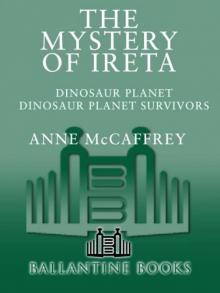 The Mystery of Ireta
The Mystery of Ireta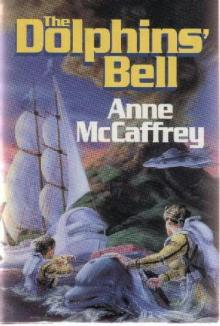 Dolphins' Bell
Dolphins' Bell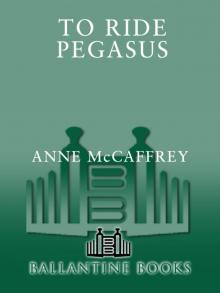 To Ride Pegasus
To Ride Pegasus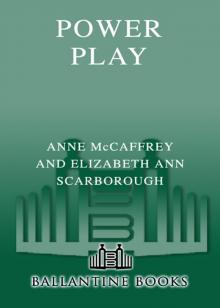 Power Play
Power Play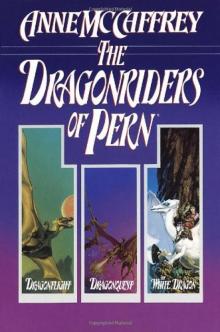 The Dragonriders of Pern
The Dragonriders of Pern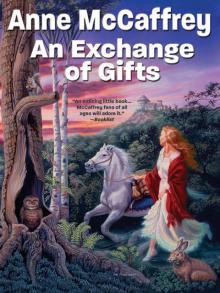 An Exchange of Gifts
An Exchange of Gifts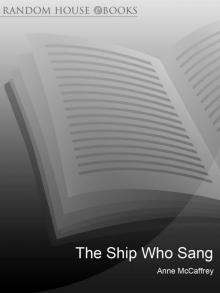 The Ship Who Sang
The Ship Who Sang Sky Dragons: Dragonriders of Pern
Sky Dragons: Dragonriders of Pern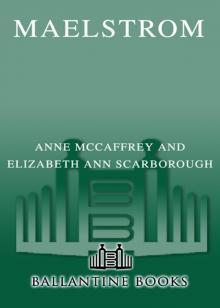 Maelstrom
Maelstrom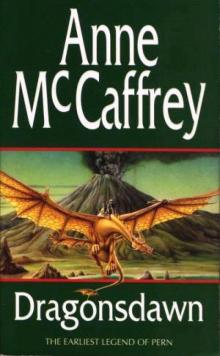 Dragons Dawn
Dragons Dawn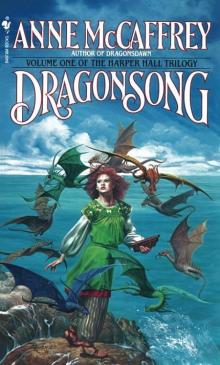 Dragon Song
Dragon Song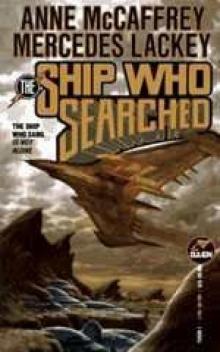 The Ship Who Searched b-3
The Ship Who Searched b-3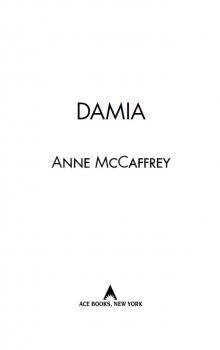 Damia
Damia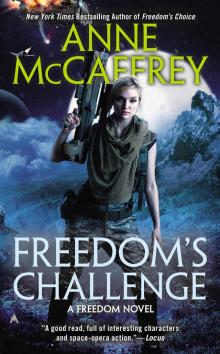 Freedom's Challenge
Freedom's Challenge